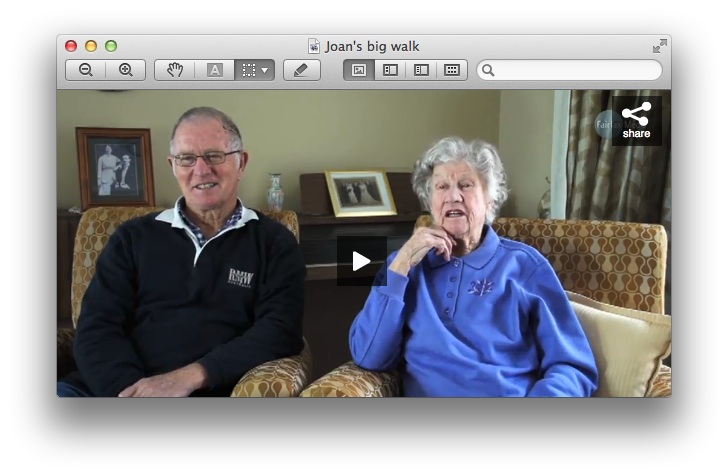Are you looking for a way to help yourself get more active and help maintain your brain? Well, here is a story that might just give you enough reason to make a go of it and it is also a timely reminder that it is NEVER too late to enjoy the benefits of increasing the amount of exercise you do.
When I discuss ways to help reduce your risk relative risk of dementia in my brain fitness classes, I always include the need to “find that thirty”, thirty minutes of aerobic activity undertaken every day to boost your brain’s natural plasticity.
Walking, cycling, swimming, or anything that gets your heart rate up and makes you feel a little puffed is all it takes and thirty minutes is just one minute, thirty times over in your day.
The cognitive and other benefits of simply walking has been demonstrated in many studies:
- It helps to maintain our memory and thinking skills.
- It helps us to learn, to enjoy more insight and creative and imaginative thinking.
- It helps us to solve more problems and make better decisions when we exercise regularly.
- It helps to improve sleep patterns.
- It stimulates the immune system so you are less likely to get sick.
- It’s great for promoting good heart health.
- It helps to stabilise our mood and make us feel more positive.
- It even stimulates our brain to produce new neurons that are then integrated into our existing brain circuitry.
These are the benefits of maintaining good brain function and protecting ourselves from dementia.
Just going for a 30 minute walk, three times a week cuts your relative risk of dementia by half.
It reduces your relative risk of stroke by 67%.
But what if you already have dementia?
Is there any benefit to be derived from continuing to be as active as possible?
An unequivocal yes.
In this short video, follow the wonderful story of Joan, aged all of 94 who engages in a bit of a walk with some of her friends. A mere 20,000 kms walk all around Australia.
Joan’s BIG walk Just click on the link to watch the 5 minute clip. To avoid the advert that comes first, click on the link to the story under the screen.
The beauty of this program lies in its simplicity and the realisation that anybody and everybody can do this.
If you have a family member with dementia, and particularly if they are still physically active and capable of walking safely – the message is here. Regular walks can make a significant difference to stimulating an individual’s physical and mental capacity.
Whilst there is no way of turning the clock back and no cure for dementia, it is a simple strategy to enhance wellbeing and a higher level of functioning for longer.
Time to get out and enjoy a nice walk – even if you don’t make it all around Australia before tea.



